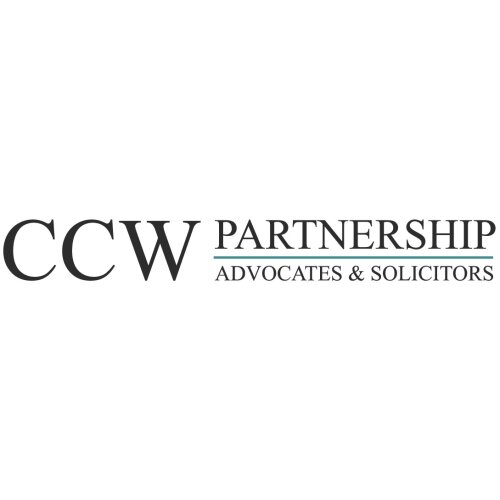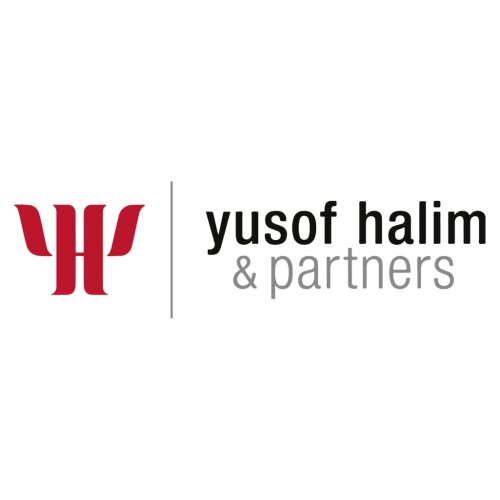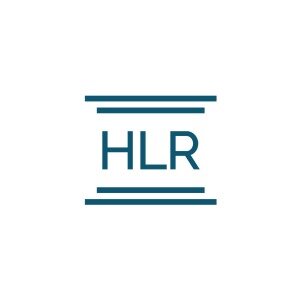Best Public-Private Partnerships (PPP) Lawyers in Bandar Seri Begawan
Share your needs with us, get contacted by law firms.
Free. Takes 2 min.
List of the best lawyers in Bandar Seri Begawan, Brunei
About Public-Private Partnerships (PPP) Law in Bandar Seri Begawan, Brunei
Public-Private Partnerships (PPP) are collaborative agreements between government entities and private sector companies designed to finance, build, and operate projects that serve the public interest. In Bandar Seri Begawan, Brunei’s capital, PPPs are increasingly used to develop infrastructure such as roads, utilities, hospitals, and educational facilities. The government encourages PPPs to leverage private expertise and resources for public projects, while ensuring both sides share risks and responsibilities. PPP agreements in Brunei typically include clear guidelines on project scope, financing, performance standards, and dispute resolution.
Why You May Need a Lawyer
There are many situations where you may require legal help in matters related to PPPs in Bandar Seri Begawan. These include:
- Understanding complex PPP contracts and ensuring your interests are protected
- Participating in public tenders or requests for proposals for PPP projects
- Negotiating contract terms such as risk allocation, financing, and revenue-sharing
- Complying with government regulations and administrative requirements
- Addressing delays, performance issues, or breaches of contract by either party
- Resolving disputes through negotiation, mediation, or arbitration
- Advising on intellectual property, land use, environmental regulations, or employment concerns
- Navigating any changes to PPP regulations or legal frameworks in Brunei
Local Laws Overview
PPPs in Bandar Seri Begawan operate under the broader legal framework of Brunei Darussalam. There is no dedicated PPP Act as of 2024, but various regulations govern such partnerships:
- Government Contract Regulations: Standard rules apply to contracts between government agencies and private companies, including procurement, transparency, and anti-corruption measures.
- Public Procurement Law: PPP projects generally follow public procurement rules to ensure fair competition and transparent bidding processes. This means strict compliance with eligibility, documentation, and evaluation requirements.
- Company and Investment Laws: Private sector participants must comply with the Companies Act and the relevant investment guidelines regulated by the Ministry of Finance and Economy (MOFE).
- Land and Environmental Regulations: Any PPP involving land acquisition or development must observe land tenure laws, zoning, and environmental protections overseen by the Ministry of Development (MOD).
- Dispute Resolution: PPP contracts often specify arbitration under Brunei’s Arbitration Order 2009 or other mutually agreed procedures to resolve disputes efficiently and confidentially.
Frequently Asked Questions
What is a Public-Private Partnership (PPP)?
A PPP is a long-term contract between a government entity and a private company to deliver a public service or infrastructure project, sharing risks, responsibilities, and benefits.
Who regulates PPPs in Bandar Seri Begawan?
The Ministry of Finance and Economy (MOFE) is the main government body overseeing PPP frameworks, but sector-specific agencies such as the Ministry of Development (MOD) may be involved for specific projects.
Can foreign companies participate in PPPs in Brunei?
Foreign companies may participate, often through joint ventures with local partners, provided they comply with national investment policies and eligibility criteria.
What are the main risks in PPPs?
Key risks include construction delays, cost overruns, regulatory changes, demand risk, and disputes over contract interpretation or performance standards.
How are disputes in PPPs resolved?
Disputes are usually managed through negotiation, mediation, and arbitration, as stipulated in the contract. Brunei’s Arbitration Order 2009 provides a legal basis for arbitration.
How long do PPP projects usually last?
PPP agreements in Brunei typically last 10 to 30 years, depending on the sector and the scope of the project.
Are there incentives for private sector participation in PPPs?
The government may offer incentives such as tax concessions, guarantees, or grants to promote private participation in PPPs, especially for priority infrastructure projects.
What is the role of the government in a PPP?
The government generally defines project requirements, oversees procurement, grants approvals, and monitors performance during the project lifecycle.
What due diligence is needed for PPPs?
Thorough due diligence includes reviewing the project’s legal, financial, and technical feasibility, examining compliance requirements, and understanding local laws and regulations.
How does local law affect foreign investment in PPPs?
Local laws outline investment rules, profit repatriation, currency regulations, and land ownership restrictions. Legal advice is essential to ensure compliance and protect investments.
Additional Resources
To support those engaging in PPP projects in Bandar Seri Begawan, the following bodies and resources may be helpful:
- Ministry of Finance and Economy (MOFE): The principal authority for PPP regulation, policy guidance, and investment incentives.
- Ministry of Development (MOD): Oversight of building, infrastructure, and environmental approval processes.
- Attorney General’s Chambers: Provides legal opinions and guidance on the interpretation of laws and regulations affecting PPPs.
- Brunei Darussalam Arbitration Centre (BDAC): Supports arbitration for dispute resolution in commercial matters, including PPPs.
- Local law firms: Many international and local firms in Bandar Seri Begawan specialize in PPP, infrastructure, and corporate law, offering tailored legal services.
Next Steps
If you are considering entering a PPP in Bandar Seri Begawan or already involved in one, here’s how to proceed:
- Identify your legal and business objectives for the PPP project.
- Gather all relevant documents, including tender information, contracts, and correspondences with government agencies.
- Contact a legal professional with experience in PPPs, ideally based in Bandar Seri Begawan.
- Request an initial legal consultation to discuss the specific risks, obligations, and requirements relevant to your project.
- Work with your lawyer to review or draft contracts, conduct due diligence, and ensure compliance with all local laws and regulations.
- Maintain clear communication with all project stakeholders and keep records of agreements and approvals.
Lawzana helps you find the best lawyers and law firms in Bandar Seri Begawan through a curated and pre-screened list of qualified legal professionals. Our platform offers rankings and detailed profiles of attorneys and law firms, allowing you to compare based on practice areas, including Public-Private Partnerships (PPP), experience, and client feedback.
Each profile includes a description of the firm's areas of practice, client reviews, team members and partners, year of establishment, spoken languages, office locations, contact information, social media presence, and any published articles or resources. Most firms on our platform speak English and are experienced in both local and international legal matters.
Get a quote from top-rated law firms in Bandar Seri Begawan, Brunei — quickly, securely, and without unnecessary hassle.
Disclaimer:
The information provided on this page is for general informational purposes only and does not constitute legal advice. While we strive to ensure the accuracy and relevance of the content, legal information may change over time, and interpretations of the law can vary. You should always consult with a qualified legal professional for advice specific to your situation.
We disclaim all liability for actions taken or not taken based on the content of this page. If you believe any information is incorrect or outdated, please contact us, and we will review and update it where appropriate.














